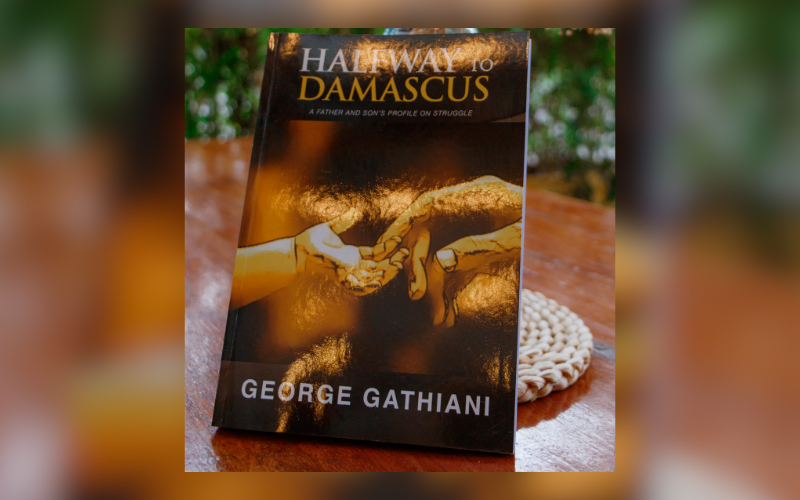At four years old, George Gathiani was fascinated with books about plant animals. As he pondered on this, a curiosity about stories about human beings sprouted, and so did his liking for biographies. Now a non-fiction writer, George has penned biographies and his latest, ‘Halfway to Damascus’ published by Wanderer’s Path Publishers examines intergenerational conflicts. The book was launched on June 7 at Lava Latte Café in Nairobi.
What does the title of this book mean?
It is a reference to the biblical story of Saul, who was struck with blindness when he was halfway to Damascus. My book is a biographical profile of Justice Nicholas Ombija and his son, an author and a doctor, Franz Owano. It covers the extreme hardship that they both grew up in and the distinction between the approach to life of him and Franz.
Franz experiences the vile poverty and discrimination that many people growing up in rural Kenya go through. He is then able to see that his practice as a doctor is about healing the body and mind.
What internal or external conflicts drive the narrative?
In the book, you will see the conflict between generations, a father and son, who have different understandings of the world. It is the journey of a man who becomes an adult.
How do relationships in the book reflect broader themes you are exploring?
It explores generational divide, where the young generation makes decisions that older generations didn’t make. It is about older generations accepting the new directions that their children are taking. You will see young children defy their parents and take new paths for themselves.
What did you learn from writing ‘Halfway to Damascus’?
I am a trained businessperson. The more I wrote, the more I saw its importance. It took me four months to write the book. With people you think you know very well, there is more to their story. I discovered writing is about other people and not about me.
Before Halfway to Damascus, what kind of writing had you done?
I have contributed to five books, including ‘A Hungry Man, A Hunting Man’ about Josphat Lowoi and ‘Searching for Dokata Kofi’ about escape from Marsabit. ‘Halfway to Damascus’ is a part of a series titled ‘Champions’, tracing people who have become champions in their own lives in traditional and modern Kenya: Marsabit, Turkana, Baringo, and Ol Moran.
What do you enjoy about writing biographies?
The uniqueness of it all: people have stories that really need telling.
Do you have a writing routine, or are you more spontaneous?
I do have a strict writing routine. Writing is a project management to me, and each book had deliverables. I like to spend an hour each for reading and writing. When I am writing a book, I read an hour and spend the next six to eight hours writing.
What kind of stories are you drawn to read?
Classics, works by African writers, and good fiction.
Where do you like to write?
I like to write where there are a lot of people to absorb their energy; it can be a library, a coffee shop, a bar, or even a church. When at my best, ideas come to me. If I am alone, I listen to instrumental music to keep me focused.
Favourite place to read?
A special reading chair on my balcony.
The book on your bedside table right now?
‘The Politics of Institutional Choice’ by Steven Smith and Thomas Remington, and ‘Artemis Fowl’, a children’s book series by Eoin Colfer.
Author, dead or alive, whom would you love to sit down with?
David Chalmers; he understands spirituality through a scientific lens.


